I want to load a DLL in C# dynamically so i can unload it at execution time. I found some articles but none really helped me. I need to unload the DLL because it does not provide any functions to release/clean up the memory. The actual problem: Its a hardware driver (CAN-USB) and i need to restart my application if the hardware gets disconnected, which is very annoying. If i could load it into an assembly (or something like that) i could "unload" respectively "reload" it. I would need a short and minimalistic, but relating example how to load my dll and how to import and use the dll functions. I attached a screenshot how i am using them right now.
What I need summarized:
Example on how to load a dll (of the attached type) dynamically and how to use its functions.
How to unlead/reload the dll in case of hardware disconnection.
I would appreciate any suggestions.

EDIT 1: I have now implemented it like it is described in this approach but it does not solve my problem. The CAN-USB-Hardware blocks until i close my application and start it again. Did i do something wrong or does anyone have any other suggestions how to solve my initial problem?
using System;
using System.Collections.Generic;
using System.Linq;
using System.Runtime.InteropServices;
using System.Text;
namespace InDiPro
{
public struct canData
{
public uint id;
public uint length;
public byte data0;
public byte data1;
public byte data2;
public byte data3;
public byte data4;
public byte data5;
public byte data6;
public byte data7;
}
public class EsdCanDriver
{
private IntPtr pDll;
private string dllPath;
private IntPtr fptrCanOpen;
[UnmanagedFunctionPointer(CallingConvention.Cdecl)]
private delegate int CanOpen(int net, int mode, int txqueueSize, int rxqueueSize, int txTimeout, int rxTimeout, ref int handle);
private static CanOpen _canOpen;
public int canOpen(int net, int mode, int txqueueSize, int rxqueueSize, int txTimeout, int rxTimeout, ref int handle)
{
return _canOpen(net, mode, txqueueSize, rxqueueSize, txTimeout, rxTimeout, ref handle);
}
private IntPtr fptrCanClose;
[UnmanagedFunctionPointer(CallingConvention.Cdecl)]
private delegate int CanClose(int handle);
private static CanClose _canClose;
public int canClose(int handle)
{
return _canClose(handle);
}
private IntPtr fptrCanSetBaudrate;
[UnmanagedFunctionPointer(CallingConvention.Cdecl)]
private delegate int CanSetBaudrate(int handle, int baudrate);
private static CanSetBaudrate _canSetBaudrate;
public int canSetBaudrate(int handle, int baudrate)
{
return _canSetBaudrate(handle, baudrate);
}
private IntPtr fptrCanGetBaudrate;
[UnmanagedFunctionPointer(CallingConvention.Cdecl)]
private delegate int CanGetBaudrate(int handle, ref int baudrate);
private static CanGetBaudrate _canGetBaudrate;
public int canGetBaudrate(int handle, ref int baudrate)
{
return _canGetBaudrate(handle, ref baudrate);
}
private IntPtr fptrCanIdAdd;
[UnmanagedFunctionPointer(CallingConvention.Cdecl)]
private delegate int CanIdAdd(int handle, int id);
private static CanIdAdd _canIdAdd;
public int canIdAdd(int handle, int id)
{
return _canIdAdd(handle, id);
}
private IntPtr fptrCanIdDelete;
[UnmanagedFunctionPointer(CallingConvention.Cdecl)]
private delegate int CanIdDelete(int handle, int id);
private static CanIdDelete _canIdDelete;
public int canIdDelete(int handle, int id)
{
return _canIdDelete(handle, id);
}
private IntPtr fptrCanSend;
[UnmanagedFunctionPointer(CallingConvention.Cdecl)]
private delegate int CanSend(int handle, ref canData msg, ref int length);
private static CanSend _canSend;
public int canSend(int handle, ref canData msg, ref int length)
{
return _canSend(handle, ref msg, ref length);
}
private IntPtr fptrCanTake;
[UnmanagedFunctionPointer(CallingConvention.Cdecl)]
private delegate int CanTake(int handle, ref canData msg, ref int length);
private static CanTake _canTake;
public int canTake(int handle, ref canData msg, ref int length)
{
return _canTake(handle, ref msg, ref length);
}
private IntPtr fptrCanWrite;
[UnmanagedFunctionPointer(CallingConvention.Cdecl)]
private delegate int CanWrite(int handle, ref canData msg, ref int length, ref int dummy);
private static CanWrite _canWrite;
public int canWrite(int handle, ref canData msg, ref int length, ref int dummy)
{
return _canWrite(handle, ref msg, ref length, ref dummy);
}
private IntPtr fptrCanRead;
[UnmanagedFunctionPointer(CallingConvention.Cdecl)]
private delegate int CanRead(int handle, ref canData msg, ref int length, ref int dummy);
private static CanRead _canRead;
public int canRead(int handle, ref canData msg, ref int length, ref int dummy)
{
return _canRead(handle, ref msg, ref length, ref dummy);
}
public EsdCanDriver(string dllPath)
{
this.dllPath = dllPath;
}
public bool LoadDriver()
{
pDll = NativeMethods.LoadLibrary(this.dllPath);
if(pDll == IntPtr.Zero)
{
return false;
}
else
{
fptrCanOpen = NativeMethods.GetProcAddress(pDll, "__canOpen@28");
if (fptrCanOpen == IntPtr.Zero) return false;
_canOpen = (CanOpen)Marshal.GetDelegateForFunctionPointer(fptrCanOpen, typeof(CanOpen));
fptrCanClose = NativeMethods.GetProcAddress(pDll, "__canClose@4");
if (fptrCanClose == IntPtr.Zero) return false;
_canClose = (CanClose)Marshal.GetDelegateForFunctionPointer(fptrCanClose, typeof(CanClose));
fptrCanSetBaudrate = NativeMethods.GetProcAddress(pDll, "__canSetBaudrate@8");
if (fptrCanSetBaudrate == IntPtr.Zero) return false;
_canSetBaudrate = (CanSetBaudrate)Marshal.GetDelegateForFunctionPointer(fptrCanSetBaudrate, typeof(CanSetBaudrate));
fptrCanGetBaudrate = NativeMethods.GetProcAddress(pDll, "__canGetBaudrate@8");
if (fptrCanGetBaudrate == IntPtr.Zero) return false;
_canGetBaudrate = (CanGetBaudrate)Marshal.GetDelegateForFunctionPointer(fptrCanGetBaudrate, typeof(CanGetBaudrate));
fptrCanIdAdd = NativeMethods.GetProcAddress(pDll, "__canIdAdd@8");
if (fptrCanIdAdd == IntPtr.Zero) return false;
_canIdAdd = (CanIdAdd)Marshal.GetDelegateForFunctionPointer(fptrCanIdAdd, typeof(CanIdAdd));
fptrCanIdDelete = NativeMethods.GetProcAddress(pDll, "__canIdDelete@8");
if (fptrCanIdDelete == IntPtr.Zero) return false;
_canIdDelete = (CanIdDelete)Marshal.GetDelegateForFunctionPointer(fptrCanIdDelete, typeof(CanIdDelete));
fptrCanSend = NativeMethods.GetProcAddress(pDll, "__canSend@12");
if (fptrCanSend == IntPtr.Zero) return false;
_canSend = (CanSend)Marshal.GetDelegateForFunctionPointer(fptrCanSend, typeof(CanSend));
fptrCanTake = NativeMethods.GetProcAddress(pDll, "__canTake@12");
if (fptrCanTake == IntPtr.Zero) return false;
_canTake = (CanTake)Marshal.GetDelegateForFunctionPointer(fptrCanTake, typeof(CanTake));
fptrCanWrite = NativeMethods.GetProcAddress(pDll, "__canWrite@16");
if (fptrCanWrite == IntPtr.Zero) return false;
_canWrite = (CanWrite)Marshal.GetDelegateForFunctionPointer(fptrCanWrite, typeof(CanWrite));
fptrCanRead = NativeMethods.GetProcAddress(pDll, "__canRead@16");
if (fptrCanRead == IntPtr.Zero) return false;
_canRead = (CanRead)Marshal.GetDelegateForFunctionPointer(fptrCanRead, typeof(CanRead));
return true;
}
}
public bool FreeDriver()
{
return NativeMethods.FreeLibrary(pDll);
}
}
}